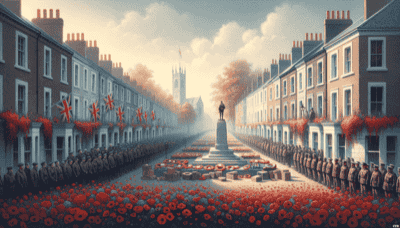We're here to help you keep count of the days to or since a date. Just click the button below and enter your chosen date to get started. Also choose the suggested days or search for a special day above #countingthedays

Remembrance Sunday is a day observed in the UK to honor the service and sacrifice of the Armed Forces community, the British and Commonwealth veterans, the Allies, and civilians in times of war and conflict. It is traditionally held on the second Sunday in November.
The tradition began after World War I as a way to remember those who had died during the conflict. The first official Armistice Day was held on November 11, 1919. Over time, it evolved into Remembrance Sunday to allow for broader participation beyond just those observing the silence at 11 a.m. on November 11th.
At 11 a.m., there is a two-minute silence observed across the country, marking the end of hostilities in World War I and remembering those who have fallen.
In London, there is a national service of remembrance at The Cenotaph in Whitehall, where members of the Royal Family lay wreaths, followed by politicians, representatives from various services and organizations.
The red poppy has become a symbol of remembrance and is worn by many people. The poppy's significance comes from its ability to grow on battlefields as one of the first plants to emerge from soil churned up by fighting.
Church services are held throughout the country with readings, hymns, and prayers dedicated to those who lost their lives.
Veterans and service personnel often parade through towns alongside cadets and members of various associations related to military service.
Individuals across the UK participate by attending ceremonies or watching broadcasts of events like The Cenotaph parade. Many also visit war memorials or graveyards to pay their respects privately. Additionally, people might engage in fundraising activities for veterans' charities such as The Royal British Legion.